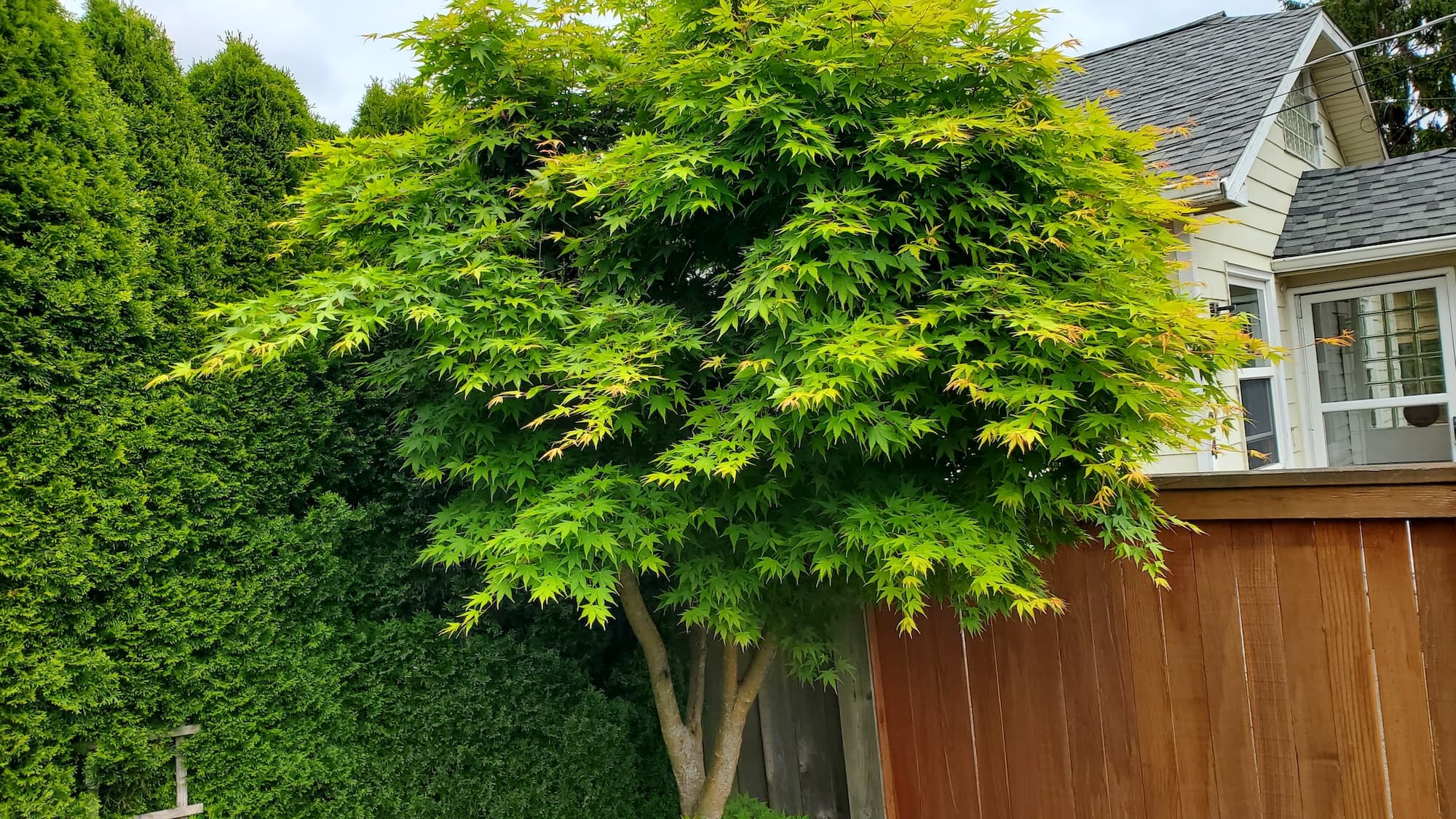West Seattle Bonsai Tree Pruning
Homeowner’s Issue
West Seattle bonsai owners face a distinct set of challenges that differ from inland Seattle yards. Winters are long and wet, summers are mild but can get dry on exposed bluffs like Alki; salt spray and wind on waterfront properties stress leaves and thin soil mixes. Many West Seattle yards sit under large maples and cedars or on compacted glacial till, producing aggressive moss and ivy pressure that competes with container-grown bonsai. Drainage is a frequent problem—pots left on flat, shaded patios can sit in cold, soggy conditions that rot roots, while sunny, breezy locations on south-facing decks dry out quickly and require different pruning/tip care.
HOAs in neighborhoods like Admiral or North Admiral often prefer tidy, presentable plantings; a neglected bonsai can become a liability when branches hang over sidewalks or driveways. For potted bonsai, root-bound containers are common here due to slow growth in cool springs followed by a fast burst in summer. Sustainable pruning and repotting timed to local seasonal windows (late spring/early summer) prevent shock and reduce disease risk. Our approach factors in West Seattle microclimates—Lincoln Park shade, Alki wind, and the hilltop exposures—so the tree looks its best and survives our damp Pacific Northwest winters.
Our Quality Service
We prune with precision and local know-how: hand-pruning, sanitary tool practices, selective thinning, and careful wiring. We assess sun exposure, pot drainage, and soil mix before any cut, then prune to preserve health and silhouette. For wiring we use padded wire and check tension during follow-up visits.
Tools and methods: Japanese pruning shears, concave cutters, sanitized tools, organic potting mixes, and soil amendments suited to Seattle’s acid, loamy tendencies. No herbicides or chemical foliar sprays—only mechanical or organic controls. Typical timeline: single-tree tune-ups take 45–90 minutes; full repot-and-prune visits run 2–4 hours depending on size. Seasonal packages available for steady upkeep.
Benefits: safer branches, better curb appeal for West Seattle homes, reduced pest and disease risk, and low-maintenance shaping that survives our wet winters and dry summer spells.
What’s Included
- Initial health and site assessment (light, wind, soil, drainage).
- Precision pruning: deadwood removal, structural cuts, silhouette shaping.
- Wiring for branch placement (installed and monitored).
- Debris cleanup and tidy workspace restoration.
- Post-service care notes specific to your microclimate.
Options / Upgrades:
- Repotting into organic Bonsai mixes.
- Soil amendments: pumice, akadama blends, or aerating grit.
- Organic fertilization after pruning.
- Mulch and breathable fabric placement for outdoor bonsai displays.
- Weed control by hand and mulching (no herbicides).
- Haul-away of green waste vs. green-bin placement.
Before & After / Expectations
Expect some noise and debris during active pruning and repotting—we remove branches and old soil. Access: bonsai on upper decks or tight stairways may add time; please clear a 6 ft working area where possible. After heavy wiring or repotting there may be an adjustment period of 1–6 weeks while the tree recovers.
Care tips for West Seattle:
- Water early mornings in summer and only when surface soil dries; avoid evening watering in fall/winter to limit moss.
- Time major pruning and repotting for late spring to early summer after frost risk.
- Watch for moss and ivy in shaded yards (Lincoln Park-facing properties often need more frequent leaf clearing).
- Monitor coastal trees for salt stress and rinse foliage after windy storms near Alki.
FAQs (3–5)
How often should I prune?
Light maintenance every 2–3 months; structural pruning or wiring once a year in late spring.Can you repot and prune in the same visit?
Yes. Repotting plus pruning is standard; it increases recovery time but gives the best long-term results.Do you use herbicides to control weeds or moss?
Never. We use hand removal, mulches, and organic methods only.What if my bonsai is on a steep driveway or narrow balcony?
We’ll assess access during the estimate and bring additional manpower or gear if needed.
Call to Action
West Seattle bonsai owners: book a free estimate and seasonal plan that respects local microclimates and HOA expectations. We schedule quickly and work cleanly—no herbicides, only sustainable methods. Email neatandtidyseattle@gmail.com or call 206-538-9344 to set a visit. Trusted local care for Alki, Lincoln Park, the Admiral District, and neighborhoods across West Seattle.










